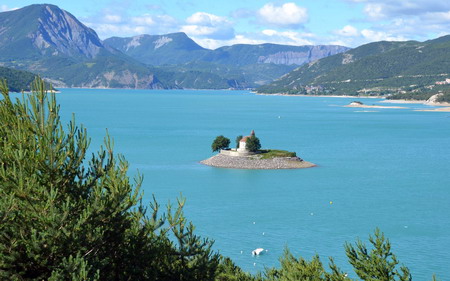 © Source : https://www.serreponcon-tourisme.com/
© Source : https://www.serreponcon-tourisme.com/
Abstract : Since the beginning of the 2000s, water allocation policies became central in Europe and France to reach Water Framework Directive goals. Improvements in irrigation efficiency is one of the main policy measure aiming to save billions of cubic meters at the European level. However, water savings environmental benefits have been debated in scientific literature and public organisms that sustain such measures. Indeed, improvements in irrigation efficiency redistribute water flows between users and the environment at the river basin scale. Multiple factors influence the outcomes, such as increasing irrigated lands and yields, caps on water abstraction, farmers’ behavior, etc. The technical aspects of this question have been widely debated, but its political dimensions far less, in particular concerning environmental water reallocation. In the southeast of France, the Durance River Basin represents an ideal case study because saved water reallocations are made visible by large water infrastructure and canals. Water officials have implemented water savings policies for about 50 years and created specific policy instruments for environmental reallocation. Anchored in political science and political ecology approaches, we analyze water savings and environmental water reallocation policies paradigms, instruments and territorialization. Rather than a technical « no regret » measure, we show that improvements in irrigation efficiency rely on multiple negotiations and compromises allowing the arrangement of worldviews, norms of action, interdependent water uses and discourses of diverse hydro-social territories, whereas environmental benefits remain uncertain. Consensus building is constrained by historical interests and institutions legacy, and rely on both translation processes from national or hydrographic scales to the local level, and bottom-up forces from territories for policy instrument adaptations. We show the critical role of ambiguities in institutional change, and how policy instruments such as quantification procedures participate in naturalizing socially constructed realities and political arbitrages. Overall, this thesis contributes to debates over humans and non-humans water allocations, based on an interdisciplinary framework that shows the multiple interactions between water and money flows, power relations and resources allocations, hydro social territories and public action construction.
Keywords : water policy, water management, water savings, environmental flows, Durance River Basin, hydro-social territories.






